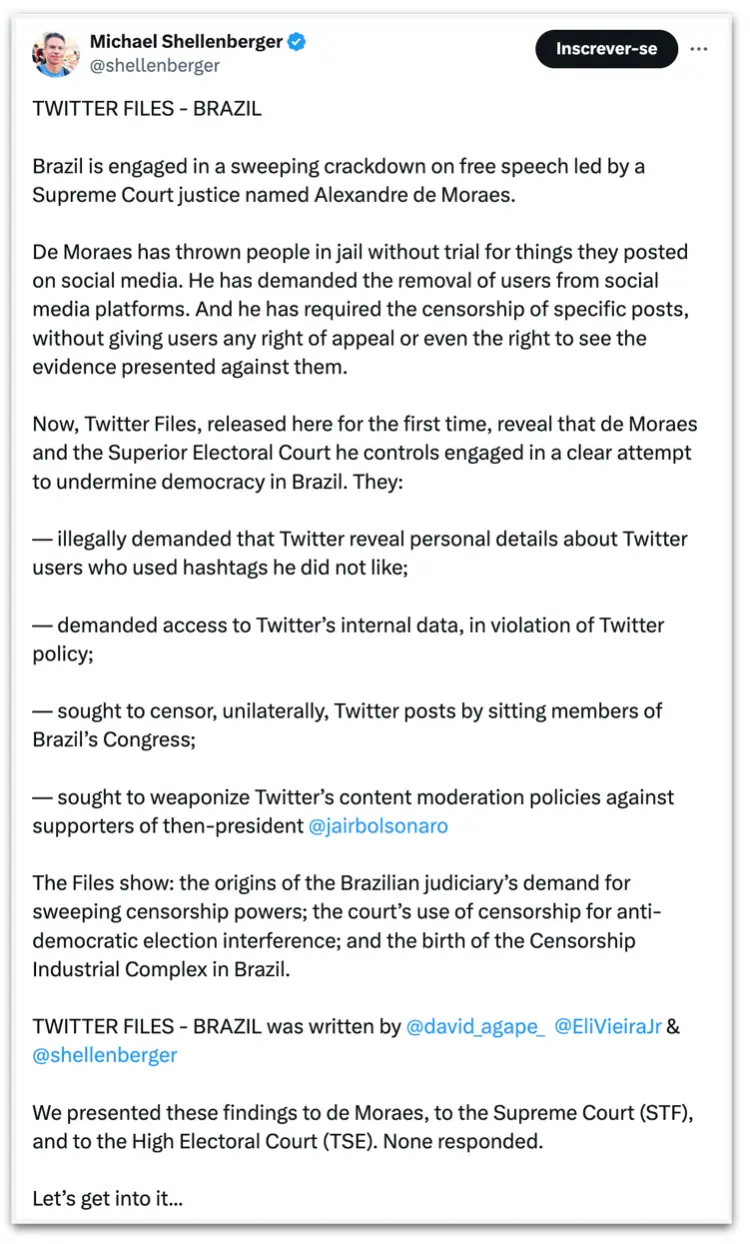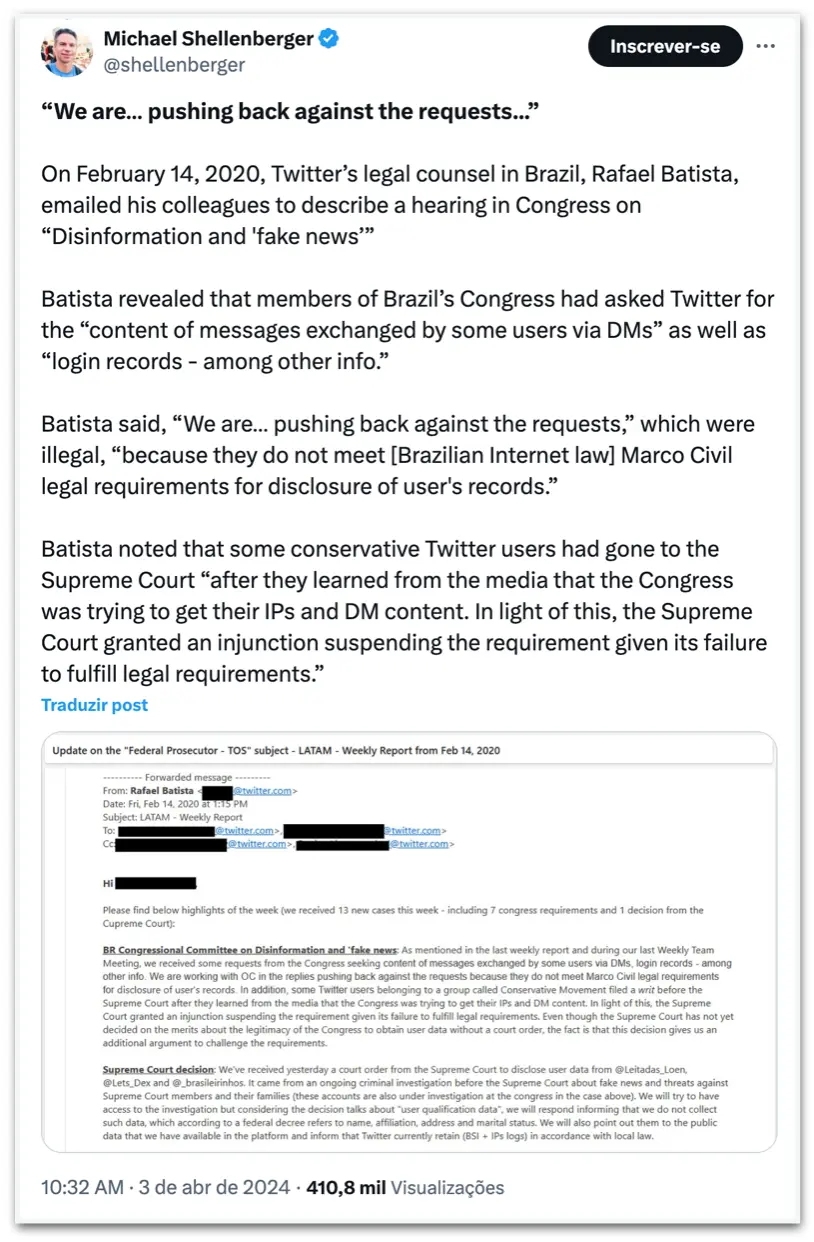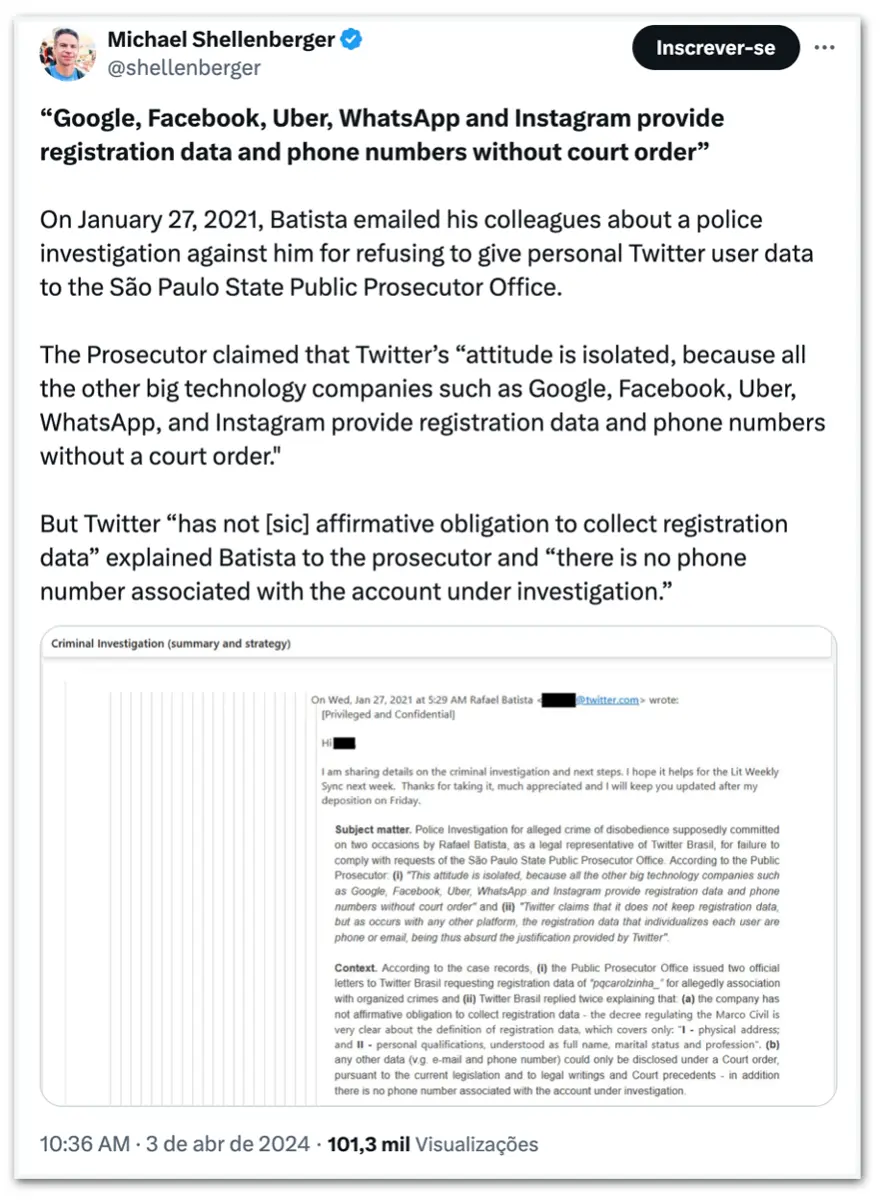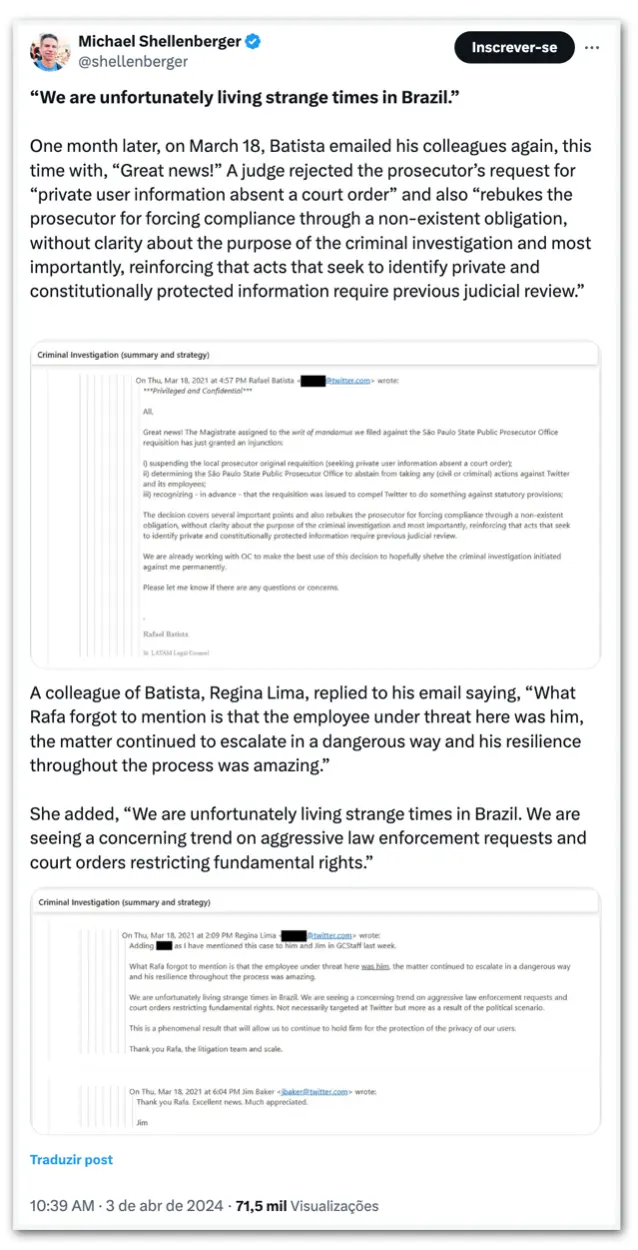On April 3, 2024, journalist Michael Shellenberger reported on Brazil’s enforcement actions regarding freedom of expression.
He criticized Supreme Federal Court Justice Alexandre de Moraes, accusing him of actions that potentially undermine democracy.
Moraes, a figure of considerable controversy in Brazil, faces allegations related to censorship, political activism, and a controversial background.
Shellenberger’s outcry on X (formerly Twitter) revealed Moraes’s alleged undue influence in the Superior Electoral Court (TSE).
He stands accused of threatening democratic values by censoring lawmakers and demanding private user data against platform rules.
These revelations are part of the Twitter Files – Brazil, disclosed by Elon Musk.
This series previously uncovered Twitter bending to U.S. demands to block content about Joe Biden’s son.
The Brazil files expose Twitter’s struggle with government requests to moderate content, revealing compliance in some instances.
Shellenberger accused Moraes of arresting citizens for their social media activity without due process, forcing user bans, and censoring without allowing defense or evidence review.
Moraes’s directives included probing personal information of users who shared specific hashtags and accessing Twitter’s confidential data unlawfully.
He targeted Brazilian congress members and supporters of ex-president Jair Bolsonaro, aiming to leverage Twitter for political gains.
This situation highlights the judiciary’s push for censorship, marking an alarming trend towards electoral meddling and the rise of a Censorship Industrial Complex in Brazil.
Twitter’s legal team, led by Rafael Batista, resisted both legal and illegal demands for user information, underscoring its commitment to privacy and free expression.
Despite Shellenberger, along with journalists David Ágape and Eli Vieira, shedding light on these issues, their findings were ignored by Moraes, the STF, and the TSE.
This silence underscores a global debate on privacy, free speech, and the role of digital platforms, with Brazil’s controversy drawing international concern for democracy and expression rights.
Michael Shellenberger, a notable figure in policy, censorship, and free speech at the University of Austin, Texas, continues to challenge censorship, highlighting the delicate balance between free speech and misinformation control in the digital era.
Background
An AtlasIntel survey released on February 9, 2024, highlights a split in Brazilian opinions on the judiciary’s role.
Nearly 47.3% of respondents label the judiciary’s control as a “judicial dictatorship,” expressing concerns over its wide-reaching influence.
On the other hand, only 20.9% see the judiciary fulfilling its expected role properly.
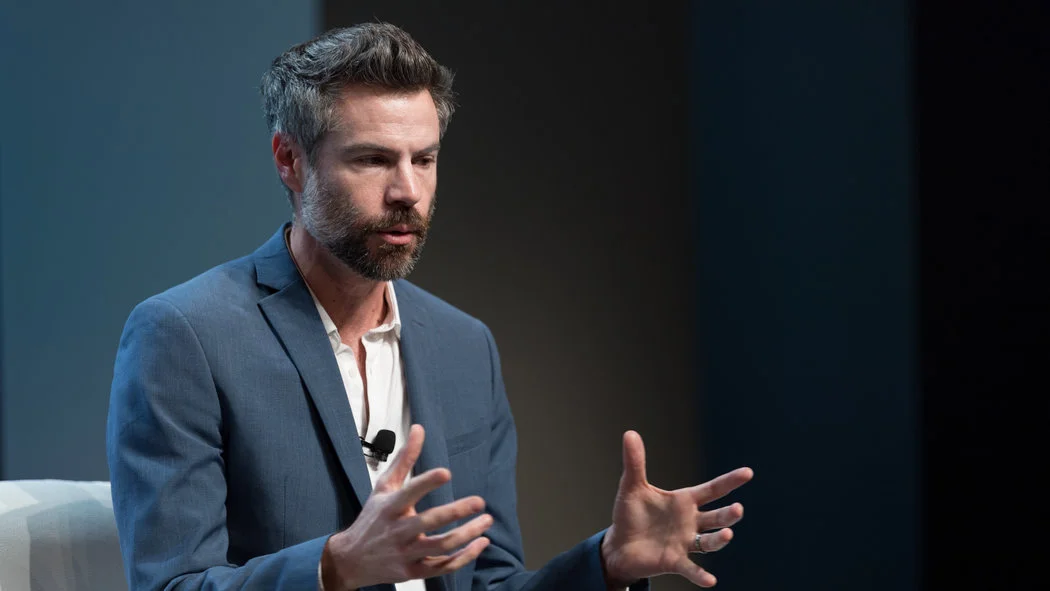
Furthermore, 16.7% criticize some judges for overstepping their boundaries without labeling it a dictatorship. About 15.2% are still undecided on this matter.
During intense political debate, critics, including former President Jair Bolsonaro, frequently target Supreme Court justices Alexandre de Moraes and Roberto Barroso.
The legal challenges Bolsonaro and his allies face have sparked significant discussions on the judiciary’s power and its equilibrium with other branches of government.
Spanning Brazil’s 27 federal units on February 8 and 9, 2024, this online survey included 1,615 participants.


